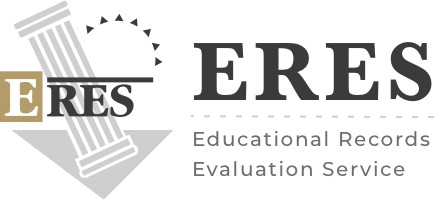Blog
Essential Insights for Aspiring Speech-Language Pathologists

Communication is the key to understanding, networking, and sharing ideas.
But, when a student or an individual faces interaction challenges or roadblocks to successful communication for language, speech, or swallowing, who do we turn to?
“Speech-Language Pathologists (SLPs)”
Speech-language pathologists (SLPs) play a pivotal role in addressing speech disorders and treating and preventing communication and swallowing disorders for patients of all ages.
Let’s dive deep into the detail -:
What is the Role of a Speech-Language Pathologist (SLP)?
Speech-language pathologists (SLPs) work with people of all ages, from young children struggling with speech development to adults recovering from neurological conditions.
They are often instrumental in helping improve the way people speak. These dedicated professionals work across diverse settings such as hospitals, schools, rehabilitation centers, and private practices.
As a speech-language pathologist, you must perform certain important various duties, like -:
Diagnosing the level of a client's articulation challenges
Setting swallowing achievable goals for treatment
Developing and conducting treatment plans
Personally Counselling clients & families
Are Speech Pathologists in Demand in the USA?
Yes, speech-language pathologists (SLPs) are in high demand in the USA, with demand projected to grow significantly in the coming years.
According to the United States Bureau of Labor Statistics (BLS) , the demand for speech-language pathologists (SLPs) is rising, with projected job growth at 21% through 2031. This surge is driven by several key trends -:
1. Turnover and Shortage
Speech pathology is an appealing career in special education, yet, many SLPs pursue this career hoping to move to other positions with greater pay. High turnover particularly in school settings is fueled by job dissatisfaction, low wages, and heavy workloads that altogether consistently necessitate fresh SLPs.
2. Diverse Practice Areas
SLPs work in various settings, including schools, hospitals, and rehab facilities. The increasing survival rates for stroke and traumatic injuries drive demand for skilled SLPs for speedy recovery. Additionally, telehealth as a service is still growing and this means that SLPs who are capable of offering.
3. Aging Population and Young Patients
Due to the increased population aged 65 and above, there is an increase in demand for rehabilitation of various ailments such as post-stroke and neurological diseases
Conversely, new mandates for early hearing disorder identification in infants raise the demand for SLPs to conduct the evaluation particularly as survival rates for premature infants improve.
How Do I Become a Speech & Language Therapist in the US?
There are various steps involved in becoming a speech-language pathologist. From pursuing an advanced degree to seeking professional educational training and obtaining licensure, all these remain at the forefront of treatment modalities. Let’s go step-by-step -:
1. Earn a Bachelor’s Degree
Start with a bachelor’s degree. Pursue your undergraduate degree in a field such as -:
Communication Science and Disorders
Language Development
Psychology and Phonetics
Anatomy and Physiology of Speech and Hearing
This helps you to build a strong foundation for your future practices in speech pathology.
2. Complete a Master’s Degree
Obtain a master’s degree in Speech-Language Pathology (MS-SLP) from a program that’s accredited by the Council on Academic Accreditation (CAA). This includes –
Motor Speech Disorders
Counseling Issues in Communication Disorders
Speech and Swallowing anatomy
Language Development
Hands-on clinical experience
Aphasia and Right Hemisphere Disorders
Too much to handle? At ERES, our experts get your credentials evaluated with ease through our comprehensive evaluation services tailored specifically for aspiring Speech-Language Pathologists.
3. Complete a Clinical Fellowship
After completing a master's, you must complete 1260 hours of clinical experience and a minimum of 36 weeks of full-time experience (or part-time) working under the guidance of a Certificate of Clinical Competence in Speech-Language Pathology (CCC-SLP).
This supervised experience lets you work with clients, refine your clinical skillset, and develop custom treatment plans under the mentorship of a licensed SLP.
4. Pass the Praxis Examination
Register for the Praxis Examination that tests your know-how on keynote topics in Speech-Language Pathology. To clear this, review books, practice tests, and enroll in study groups. Note, that the passing score is at least 162 points to move forward toward certification as an SLP.
5. Obtain Licensure
As a speech pathologist, the certifications you pursue will depend on the types of disorders you want to specialize in treating. If you get certified by The American Speech-Language-Hearing Association (ASHA), you can leverage numerous benefits. To apply for state licensure, you must -:
Verify your master’s house
Your official Praxis score
A Speech-Language Pathology Clinical Fellowship (SLPCF) report
Documentation of 400 hours of supervised clinical experience
How Long Does it Take to Become a Speech-Language Pathologist?
Becoming a speech-language pathologist requires typically 6 to 8 years of schooling. Let’s break down the no. of speech pathologist schooling years -:
Four years: Undergraduate degree
Two years: Graduate degree (including 400 hours of supervised clinical experience)
Four years: Clinical fellowship lasts for 9 months to 1 year. This requires at least 1,260 hours of mentored clinical experience over 36 weeks (typically at least 5 hours per week). It should be completed within 4 years from the date you begin.
Eight years: Total time to SLP certification (4 years for the bachelor's degree + 2 years for the master's degree + 9 months to 1 year for the clinical fellowship).
What is the Typical Salary For a Speech Therapist?
According to the Bureau of Labor Statistics, the typical salary of a speech therapist starts from $89,000 annually, or $42.93 per hour, as of April 2024. However, it often varies according to experience, geographical location, and specialty field of treatment.
The Final Words
Becoming a speech-language pathologist (SLP) is a rewarding journey that requires a sincere commitment to education and training.
Whether you’re a college student or an educational institute, we’re here to empower your voice and help you advance your professional growth and career.
At ERES, we work closely with you to offer a structured pathway to overcome communication challenges.
Ready to start your journey as a certified SLP? Get in touch with us to make a difference in the field of speech-language pathology!
Start Now
ERES
Educational Records Evaluation Service helps Non-US educated individuals to receive their US equivalences with our credential evaluation reports.
Services
Contact us
Tue - Fri: 10:00 to 16:00 ( PST )
4773 Mangels Blvd, Fairfield, CA 94534, USA.
© 2025 Educational Records Evaluation Service. All rights reserved.












